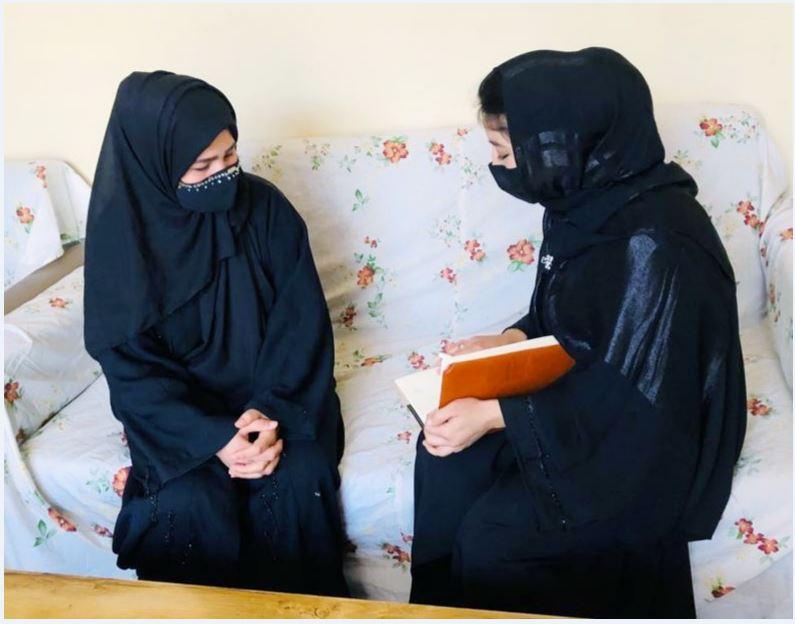SHIBERGHAN (Pajhwok): Some literacy learner women in northern Jawzjan province have demanded the ‘Islamic Emirate of Afghanistan’ (IEA) government to allow girls above class sixth to go to their schools.
One hundred literacy classes are opened for men and women in Jawzjan province where they get literacy education.
According to the UN Educational, Scientific and Cultural Organisation (UNESCO) report Afghanistan`s illiterate population (age 15 and above) has been estimated at 12 million (7.2 million female, 4.8 million male) from a total population of 39.6 million people.
The report added the literacy rate increased from 32% in 2011 to 43% in 2018 (female 29.81 % and male: 55.48%), there is a long way to go to.
Creation of literacy classes in Jawzjan
Jawzjan Education Director Mawlavi Mohammad Tahir Jawad told Pajhwok Afghan News lately 100 literacy classes had beencreated in the Aqcha, Faizabad, Mardyan, Qarqin and Khamab districts.
beencreated in the Aqcha, Faizabad, Mardyan, Qarqin and Khamab districts.
He added in these classes 1,500 illiterate men and women from age 15 to 50 are imparted literacy education.
He said out of total 100 literacy classes 52 are women classes and 48 men classes. Each class has up to 15 students.
“We are making efforts that every member of society should be blessed with the right of writing and reading. We also plan the creation of similar classes in another five districts of Jawzjan,” said Jawad.
Literacy classes students demand reopening of girls schools
Shakiba, 41, from Aqcha district, told Pajhwok Afghan News her long awaited dream of reading and writing has come true by attending literacy class. She has been admitted to the class newly.
“In childhood I went to school and studied up to class three but due to financial problems I could not continue my education,” she said.
She termed education vital for men and women and added: “From the past one week I come to this course and wish to learn reading and writing and be able to read a signboard.”
She pledged to encourage other women in her locality to study in literacy class.
Shakiba is the mother of two daughters and three sons and said due to the closure of schools her daughters stay at home and started carpet weaving.
“The fact that government stopped girls from attending schools made me worried that my daughters would grow up illiterate like me. I want government to start girls’ education,” she said.
Zarifa, 18, who also could not make it to school, is now attending a literacy class in her locality.
She is happy about the creation of literacy class in her locality and said: “When I heard that literacy course for our ten villages has been arranged and girls and women can come and become literate, I was so happy that there is no limit, I told my father that I will definitely go and enroll myself in the literacy course.”
Zarifa termed illiteracy a huge problem for every individual and added: “I suffer from my illiteracy a lot, when I see fellow girls and relatives literate and reached somewhere with the help of education I suffer a lot.”
She hoped that already created classes would be expanded and all women and girls who missed their schools would be able to attend them and learn something.
Referring to the closure of girls schools above class sixth she said: “The girl herself, her family and country suffer the most.”
She also asked the acting IEA government to reopen girls’ schools.
Sadaf Rahimi, one of the teachers in the Muradyan district, told Pajhwok Afghan News: “The continued closure of girls’ schools in different parts of the country left negative and impact on the psychological condition of girls.”
She hoped the curbs on women and girls’ education imposed by the acting government would if lift and women and girls would be facilitated to attend educational institutions.
It is pertinent to mention that after the takeover of the IEA, girls’ schools above class sixth are closed. The acting IEA government also barred girls from going to universities and work last year.
According to government officials the ban on girls’ education was temporary and they would be allowed to attend universities and schools when a proper a suitable environment is arranged.
nh







GET IN TOUCH
NEWSLETTER
SUGGEST A STORY
PAJHWOK MOBILE APP